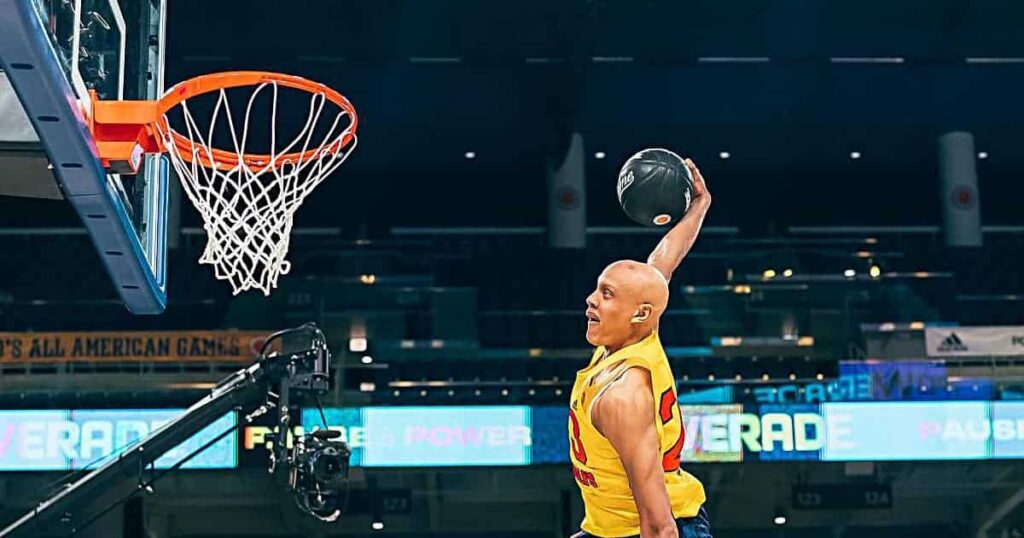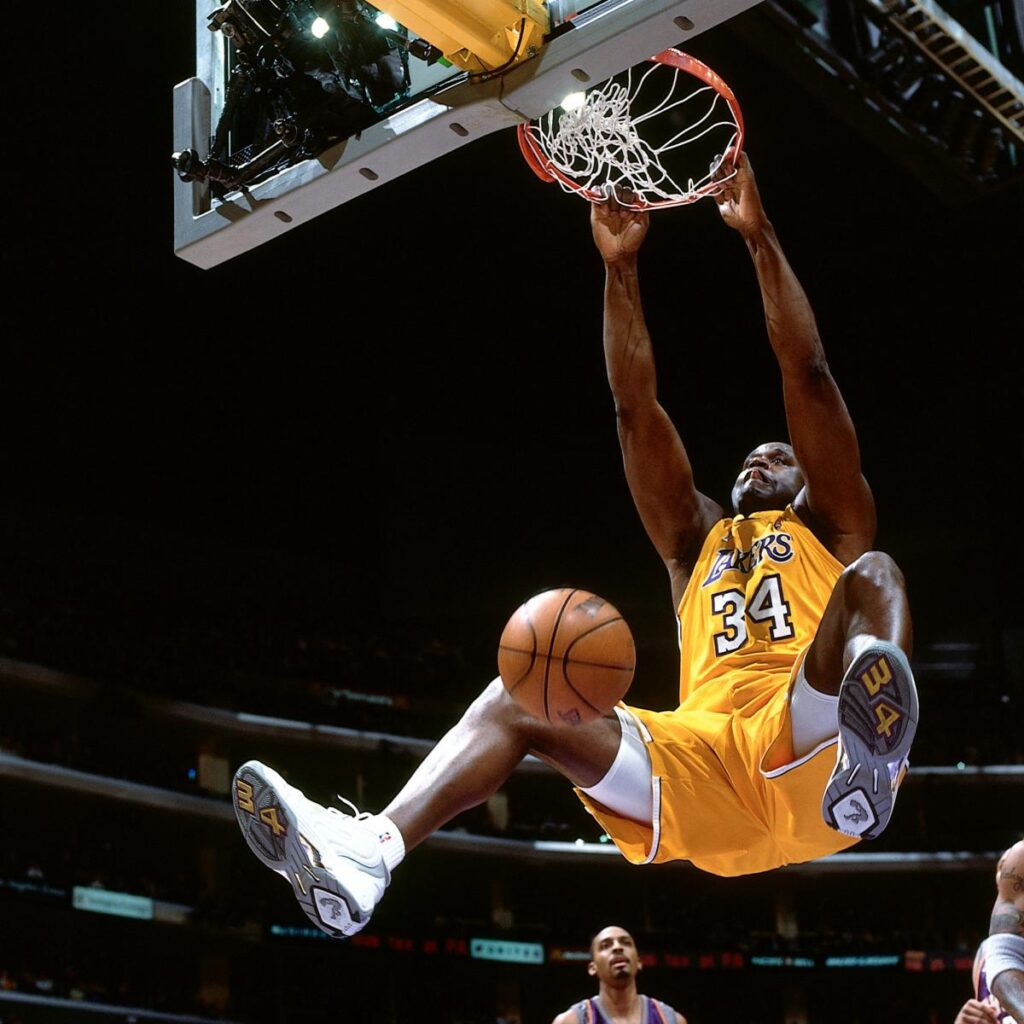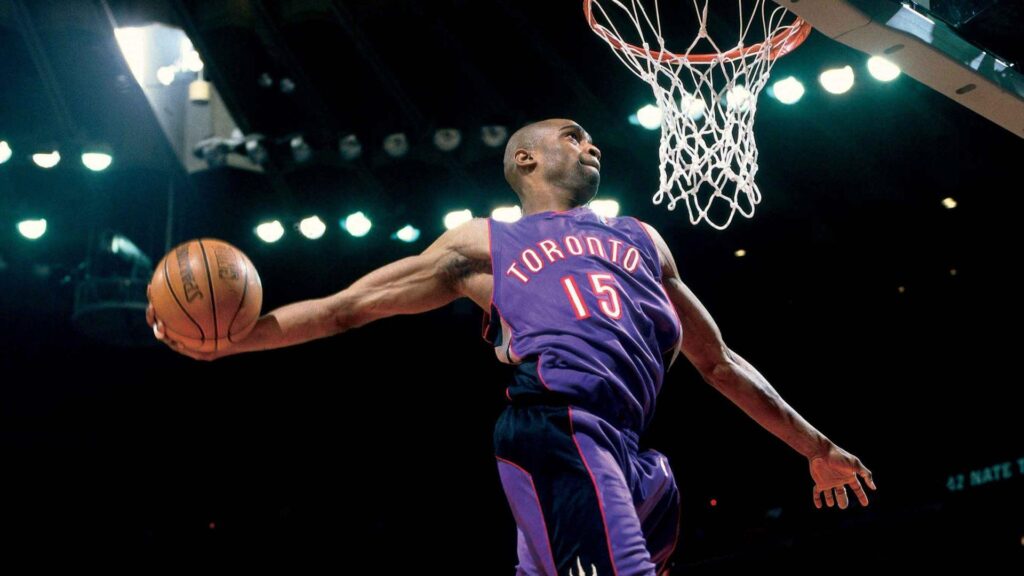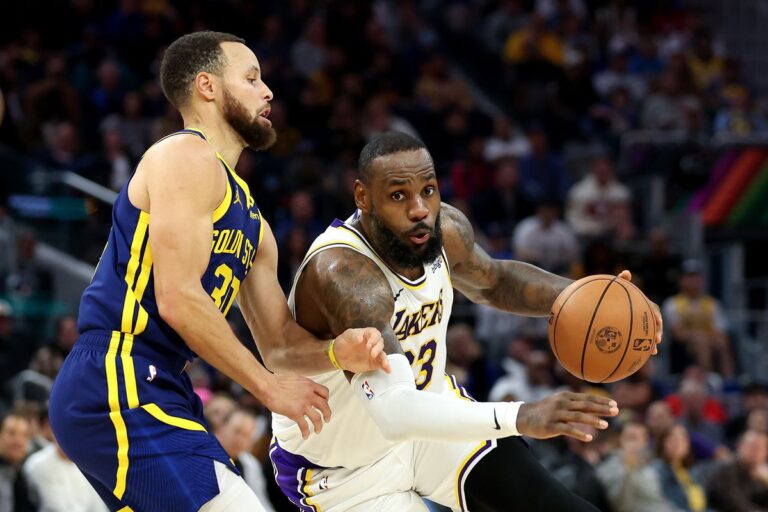Revolutionizing the Game: The Debate Over the NBA’s Rim-Hanging Rule
-
To read 7 min.
-
Published
-
Comments 0
Key Points
- Jordan Walsh’s spectacular dunk, reminiscent of Michael Jordan’s iconic plays, was overshadowed by a technical foul for rim-hanging, sparking debate over the NBA’s rule.
- The rim-hanging rule, seen by many as outdated, restricts players’ expression of athleticism and creativity, affecting the game’s excitement and cultural significance.
- Arguments for the rule often cite player safety, but the strict enforcement may overlook the context of each play, potentially compromising rather than enhancing safety.
- Reevaluating the rim-hanging rule could balance tradition with innovation, reflecting the NBA’s evolution and its role in promoting athleticism and entertainment.
The Spectacle of Athletic Brilliance vs. The Outdated Rim-Hanging Technical Foul
Witnessing a player like Jordan Walsh emulate the aerial grace of basketball legends is a rare and thrilling event that encapsulates the essence of the NBA’s appeal. When Walsh executed his awe-inspiring dunk, he not only paid homage to the great Michael Jordan but also brought an entire arena to its feet, proving that moments of sheer athletic brilliance are at the heart of basketball’s allure. However, this remarkable display was overshadowed by the enforcement of the NBA’s rim-hanging rule, leading to a technical foul that dampened the spirit of the game. This incident brings to light an ongoing contention within the league: the clash between preserving the purity of the sport and adapting to its evolution. The rule, designed to maintain decorum and safety, is increasingly viewed as a deterrent to the expression of athleticism and creativity that players like Walsh exemplify.
The criticism of the rim-hanging technical foul is not without foundation. It stems from a broader desire among fans and players alike for a game that celebrates rather than restricts athletic excellence. In the modern NBA, where highlight-reel dunks and acrobatic plays are a major draw, penalizing players for expressing their talents seems counterintuitive. The rule, reminiscent of an era when the league sought to curb perceived excesses on the court, now appears misaligned with the contemporary ethos of the sport. This discord between the rule and the current state of basketball not only frustrates players but also fans, who crave the excitement that comes from unbridled displays of skill and power. As the league continues to evolve, so too must its regulations, to ensure they foster an environment that elevates the game rather than imposing unnecessary limits on its stars.

The Cultural and Aesthetic Impact of the Rim-Hanging Rule
The imposition of the rim-hanging rule reflects more than just a concern for safety; it also touches on deeper issues of cultural expression and the aesthetics of basketball. Historically, the NBA has been a stage for not just athletic competition but also for individual expression and innovation. The high-flying dunks and dramatic plays are part of the game’s identity, contributing to its global popularity and cultural significance. However, by penalizing players for hanging on the rim, the league inadvertently stifles an aspect of the game that is both a crowd-pleaser and a testament to human athletic achievement. This rule not only impacts the outcome of games but also the way players approach the sport, potentially discouraging them from taking risks or showcasing their full capabilities out of fear of being penalized.
The debate over the rim-hanging rule is also indicative of a larger conversation about the balance between regulation and freedom within the sport. On one hand, rules are essential for ensuring fair play and safety. On the other hand, overly stringent regulations can diminish the game’s excitement and spontaneity, which are crucial for engaging fans and fostering a dynamic viewing experience. The challenge for the NBA is to find a middle ground that respects the integrity of the sport while also embracing its evolution as a platform for artistic and athletic expression. This involves recognizing that the cultural impact of basketball extends beyond the court, influencing fashion, music, and youth culture worldwide. The league’s rules should reflect and celebrate this influence, rather than constrain the very elements that make basketball a vibrant and compelling spectacle.

Redefining Safety and Spectacle in the NBA
The argument in favor of the rim-hanging rule often cites player safety as a primary concern, suggesting that hanging on the rim could lead to injuries. While this rationale has merit, the application of the rule often fails to account for the context in which players hang on the rim. In many cases, players like Tatum and Porzingis hang on the rim not out of showmanship but as a necessary measure to avoid injury, either to themselves or others. The dynamic nature of the game and the split-second decisions players must make in the air mean that what might appear as an unnecessary hang could, in fact, be a calculated effort to maintain safety. The current rule does not always allow for this nuance, leading to penalties that seem arbitrary and disconnected from the realities of the game.
Moreover, the focus on penalizing rim-hanging overlooks the potential benefits of allowing players a degree of freedom in this aspect of the game. By enabling players to use their judgment about when and how to hang on the rim, the league could enhance the safety and spectacle of the game. This approach would not only reduce the risk of injury by allowing players to protect themselves and others but also contribute to the overall excitement of the game by preserving its most electrifying moments. The NBA has a history of adapting its rules to improve the game, such as the introduction of the shot clock or the legalization of zone defense, and revisiting the rim-hanging rule could be another step forward in this continuous evolution.

A Call for Evolution in the Face of Tradition
The debate over the NBA’s rim-hanging rule is more than a disagreement over a single point of regulation; it is a reflection of the broader challenge the league faces in balancing tradition with innovation. As basketball continues to grow in popularity and influence, the need for rules that reflect the contemporary spirit and capabilities of its players has never been clearer. The NBA, revered for its ability to adapt and evolve, is at a pivotal moment where it must decide whether to cling to outdated norms or embrace a future that fully celebrates the athleticism, creativity, and cultural impact of its players. Reevaluating the rim-hanging rule represents an opportunity for the league to affirm its commitment to progress, ensuring that basketball remains at the forefront of global sports by honoring the very qualities that make it unique.
FAQs
- Why is the NBA’s rim-hanging rule considered outdated by some?
The rim-hanging rule is seen as outdated because it restricts players’ ability to express their athleticism and creativity, which are central to the game’s excitement and cultural significance. Critics argue it dampens the spectacle of basketball, making it less enjoyable for fans and players alike.
How does the rim-hanging rule impact player safety?
- While intended to promote safety, the rule’s strict enforcement can paradoxically compromise player safety. By penalizing players for hanging on the rim, it may prevent them from using the rim to stabilize themselves and avoid injury after a high-flying dunk.
- What changes are being suggested for the NBA’s rim-hanging rule?
Critics suggest reevaluating the rule to allow more flexibility and context in its enforcement. This could mean allowing players to hang on the rim when necessary for safety or to prevent injury, enhancing both the safety and spectacle of the game.














